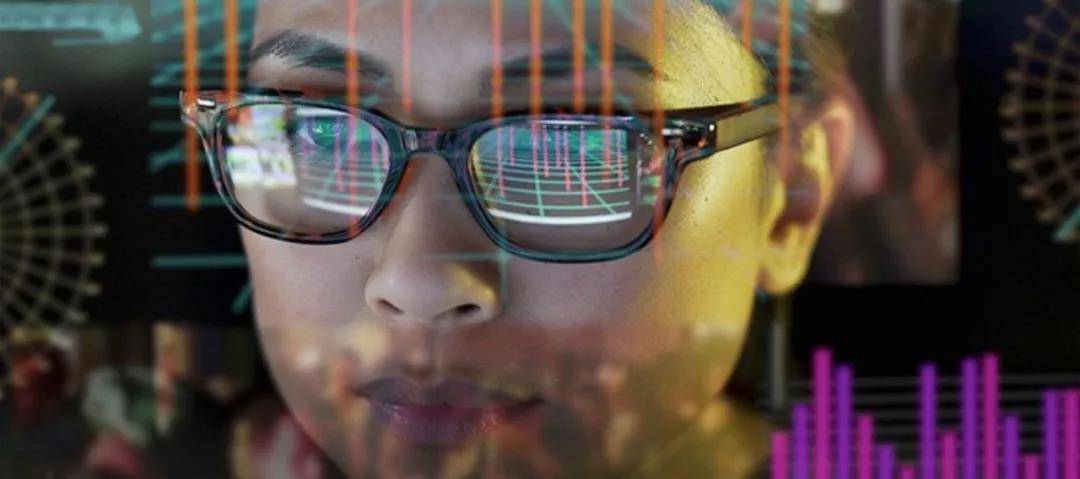教科文组织会员国通过首份人工智能伦理全球协议
(English version below)

联合国教科文组织总干事阿祖莱周四召开新闻发布会,推介该组织成员国大会刚刚通过的首个关于人工智能伦理的全球标准。
这一历史性文本确定了共同的价值观和原则,用以指导建设必需的法律框架来确保人工智能的健康发展。
人工智能如今无处不在,从航班预订、无人驾驶到个性化新闻推送,它为我们的日常工作生活带来诸多便利。人工智能还为政府和私营部门的决策提供支持。
在高度专业化的领域,如癌症筛查、为残疾人建立包容性的环境,人工智能技术正在带来显著变化。它还有助于应对气候变化和世界饥饿等全球问题,并通过优化经济援助减少贫困。
但该技术也带来了前所未有的新挑战:性别和种族偏见增加,对隐私、尊严和行动力的重大威胁,大规模监控的风险,以及在执法中越来越多地使用不成熟的人工智能技术,如此种种。直到现在,我们还没有通行的标准来应对这些问题。
2018年,教科文组织总干事阿祖莱发起了一个雄心勃勃的项目:为世界打造一个运用人工智能的伦理框架。3年后,得益于来自世界各地的数百名专家的贡献和密切的国际磋商,教科文组织的193个会员国已正式通过了这个伦理框架。
"世界需要为人工智能制定规则以造福人类。《人工智能伦理问题建议书》是一个重要的举措,它制定了首个规范性全球框架,同时赋予各国在相应层面应用该框架的责任。教科文组织将支持其193个会员国落实《建议书》内容,并要求它们定期报告相关进展和做法。"
——奥德蕾·阿祖莱(Audrey Azoulay,联合国教科文组织总干事)
建议书内容
《建议书》旨在实现人工智能给社会带来的积极效果,同时预防潜在风险。它包含以行动为导向的政策相关章节,涉及数据管理、教育、文化、劳工、医疗保健、经济等多个领域,将应对与透明度、问责制和隐私相关的问题,从而确保数字转型能够促进人权,并推动实现可持续发展目标。
-
数据保护
《建议书》呼吁,在科技公司和政府已采取的措施之外,我们还需要更多行动,通过确保透明度、行动力和对个人数据的控制来保证个体得到更多保护。它指出个体应该有权访问甚至删除其个人数据记录。它还包括改善数据保护和个体对自身数据的了解和控制权的行动,并将提高世界各地的监管机构的执行能力。
-
禁止社会评分和大规模监控
《建议书》明确禁止使用人工智能系统进行社会评分和大规模监控。此类技术极具侵入性,它们侵犯人权和基本自由,且被广泛使用。《建议书》强调,成员国在制定监管框架时应考虑最终的责任和问责必须始终由人类承担,人工智能技术本身不应获得法律人格。
-
帮助监测和评估
《建议书》还为协助自身的落实提供了工具基础。伦理影响评估意在帮助开发和部署人工智能系统的国家和公司评估这些系统对个人、社会及环境的影响。准备程度评估方法帮助成员国评估本国在法律和技术基础设施方面的情况。这一工具将有助于提高各国的机构能力,并建议采取适当措施,以确保伦理规范在实践中得到遵守。此外,《建议书》鼓励会员国考虑增设独立的人工智能伦理官员或其它相关机制,以监督审计和持续监测。
-
环境保护
《建议书》强调,人工智能行为者应支持节约数据、能源和资源的人工智能方法,这将有助于确保人工智能成为应对气候变化和解决环境问题的更有效工具。它要求政府评估整个人工智能系统生命周期的直接和间接环境影响,包括其碳足迹及人工智能技术制造所需原材料开采的能源消耗和环境影响。《建议书》还希望减少人工智能系统和数据基础设施的环境影响。它激励政府投资于绿色科技,摈弃对环境有不成比例的负面影响的人工智能系统。
"影响百千万人的决策应该是公平、透明和经得起推敲的。这些新技术必须帮助我们应对当今世界面临的主要挑战,如日益严重的不平等和环境危机,而不是促其恶化。"
——加布里埃拉·拉莫斯(Gabriela Ramos,联合国教科文组织社会科学及人文科学助理总干事)
人工智能等新兴技术已经展示了其带来积极变化的巨大能力,然而其负面影响正在加剧一个已经处于分裂和不平等状态的世界,这一方面必须得到控制。人工智能的发展应遵循法治、避免伤害,并确保在伤害发生时拥有问责和为受害者提供补偿的机制。
延伸阅读:
-
建议书全文:
https://unesdoc.unesco.org/ark:/48223/pf0000373434_chi
-
关于人工智能伦理的更多信息:
https://zh.unesco.org/artificial-intelligence/ethics

UNESCO member states adopt the first ever global agreement on the Ethics of Artificial Intelligence
Audrey Azoulay, Director-General of UNESCO presented last Thursday the first ever global standard on the ethics of artificial intelligence adopted by the member states of UNESCO at the General Conference.
This historical text defines the common values and principles which will guide the construction of the necessary legal infrastructure to ensure the healthy development of AI.
AI is pervasive, and enables many of our daily routines - booking flights, steering driverless cars, and personalising our morning news feeds. AI also supports the decision-making of governments and the private sector.
AI technologies are delivering remarkable results in highly specialized fields such as cancer screening and building inclusive environments for people with disabilities. They also help combat global problems like climate change and world hunger, and help reduce poverty by optimizing economic aid.
But the technology is also bringing new unprecedented challenges. We see increased gender and ethnic bias, significant threats to privacy, dignity and agency, dangers of mass surveillance, and increased use of unreliable AI technologies in law enforcement, to name a few. Until now, there were no universal standards to provide an answer to these issues.
In 2018, Audrey Azoulay, Director-General of UNESCO, launched an ambitious project: to give the world an ethical framework for the use of artificial intelligence. Three years later, thanks to the mobilization of hundreds of experts from around the world and intense international negotiations, the 193 UNESCO’s member states have just officially adopted this ethical framework.
"The world needs rules for artificial intelligence to benefit humanity. The Recommendation on the ethics of AI is a major answer. It sets the first global normative framework while giving States the responsibility to apply it at their level. UNESCO will support its 193 Member States in its implementation and ask them to report regularly on their progress and practices."
——Audrey Azoulay, UNESCO Director-General
The content of the recommendation
The Recommendation aims to realize the advantages AI brings to society and reduce the risks it entails. It ensures that digital transformations promote human rights and contribute to the achievement of the Sustainable Development Goals, addressing issues around transparency, accountability and privacy, with action-oriented policy chapters on data governance, education, culture, labour, healthcare and the economy.
-
Protecting data
The Recommendation calls for action beyond what tech firms and governments are doing to guarantee individuals more protection by ensuring transparency, agency and control over their personal data. It states that individuals should all be able to access or even erase records of their personal data. It also includes actions to improve data protection and an individual’s knowledge of, and right to control, their own data. It also increases the ability of regulatory bodies around the world to enforce this.
-
Banning social scoring and mass surveillance
The Recommendation explicitly bans the use of AI systems for social scoring and mass surveillance. These types of technologies are very invasive, they infringe on human rights and fundamental freedoms, and they are used in a broad way. The Recommendation stresses that when developing regulatory frameworks, Member States should consider that ultimate responsibility and accountability must always lie with humans and that AI technologies should not be given legal personality themselves.
-
Helping to monitor and evaluate
The Recommendation also sets the ground for tools that will assist in its implementation. Ethical Impact Assessment is intended to help countries and companies developing and deploying AI systems to assess the impact of those systems on individuals, on society and on the environment. Readiness Assessment Methodology helps Member States to assess how ready they are in terms of legal and technical infrastructure. This tool will assist in enhancing the institutional capacity of countries and recommend appropriate measures to be taken in order to ensure that ethics are implemented in practice. In addition, the Recommendation encourages Member States to consider adding the role of an independent AI Ethics Officer or some other mechanism to oversee auditing and continuous monitoring efforts.
-
Protecting the environment
The Recommendation emphasises that AI actors should favour data, energy and resource-efficient AI methods that will help ensure that AI becomes a more prominent tool in the fight against climate change and on tackling environmental issues. The Recommendation asks governments to assess the direct and indirect environmental impact throughout the AI system life cycle. This includes its carbon footprint, energy consumption and the environmental impact of raw material extraction for supporting the manufacturing of AI technologies. It also aims at reducing the environmental impact of AI systems and data infrastructures. It incentivizes governments to invest in green tech, and if there are disproportionate negative impact of AI systems on the environment, the Recommendation instruct that they should not be used.
"Decisions impacting millions of people should be fair, transparent and contestable. These new technologies must help us address the major challenges in our world today, such as increased inequalities and the environmental crisis, and not deepening them."
——Gabriela Ramos, UNESCO’s Assistant Director-General for Social and Human Sciences
Emerging technologies such as AI have proven their immense capacity to deliver for good. However, its negative impacts that are exacerbating an already divided and unequal world, should be controlled. AI developments should abide by the rule of law, avoiding harm, and ensuring that when harm happens, accountability and redressal mechanisms are at hand for those affected.
Read more:
-
Read the full text:
https://unesdoc.unesco.org/ark:/48223/pf0000379920
-
More on ethics of artificial intelligence:
https://zh.unesco.org/artificial-intelligence/ethics

来源: 联合国教科文组织
